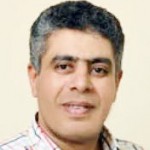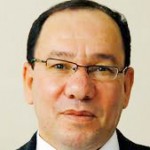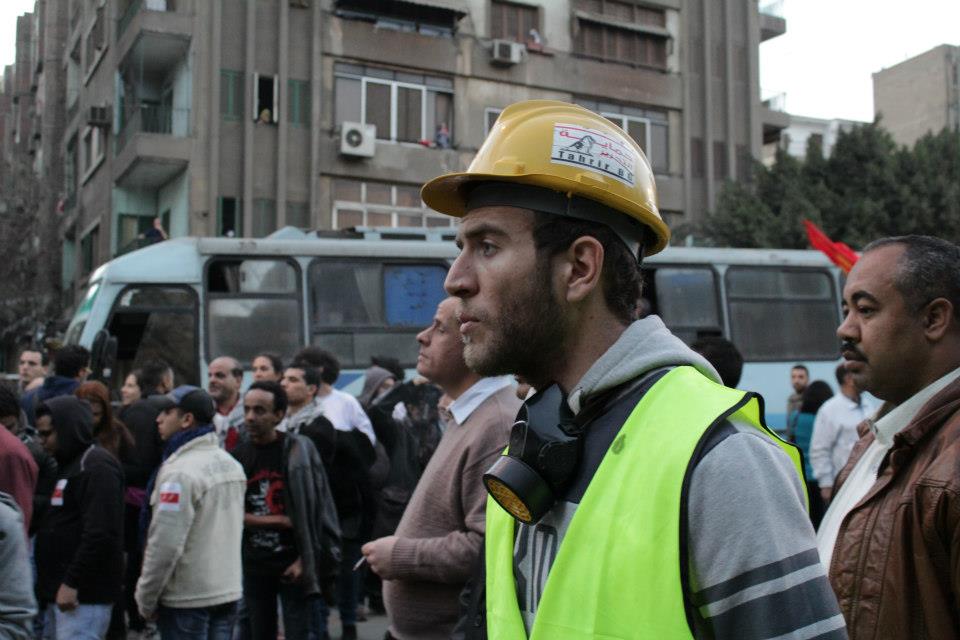The prospect of the return of the hated emergency law, issues surrounding scientific research in Egypt and more specifically the Zewail City and Nile University projects, Shafiq’s flight and Morsy’s performance; these are the domestic issues concerning columnists. Further afield, Morsy’s recent trip to Tehran continues to attract the attention of columnists, most who think he played his cards well.
Emad Al-Din Hussein
Hurry up with emergency law, so we can become ‘respectable’
Al-Shorouk newspaper

Perplexed by the current deregulation of political developments in Egypt, especially after the justice minister’s latest statements on emergency law, Hussein voices his fears that the Mubarak era will return. Amid calls to reinstate emergency law, the writer harshly criticises its advocates, who believe that the current security vacuum necessitates the restoration of this unjustifiable statute. When revolutionaries ousted a regime that had long violated their basic human rights, they yearned for a complete elimination of all sorts of oppression, including emergency law.
The security deficit present in Egypt for almost two years has ensued from the poor performance of police and security officers, not the abolishment of emergency law, according to Hussein. He presumes that officials at the Ministry of Interior prefer to operate under emergency law, which gives them more room to misuse regulations and maltreat citizens. Hussein notes that resolving the issue of security in Egypt requires a prolonged time span, not the “magic recipe” of emergency laws. He refutes the statement of counselor Mahmoud Al-Khodairy who once explained that Egyptians refuse emergency law because of how it was misused during Mubarak’s era. If the emergency law is restored, Hussein concludes that Egypt’s political system will be sustaining Mubarak’s regime with a Muslim Brotherhood cover.
Mohamed Abul Ghar
Do we have to kill the Zewail project?
Al-Masry Al-Youm newspaper

After the recent sit-ins of Nile University students triggered a debate on the future of the institution, Abul Ghar asks when will the government pay attention to scientific and academic development in Egypt? The writer recalls the challenges that Nobel Prize Laureate Ahmed Zewail faced while proposing to establish a renowned scientific institution. Although a space was allocated for Zewail City for Science and Technology in 6th of October city, the incubation process was prolonged due to inflexible bureaucratic procedures. A few years after, the idea to establish Nile University transpired when former Prime Minister Ahmed Nazif decided to base the institution on a part of the same land designated for Zewail City.
After Nazif had departed with the ousted regime, a row escalated between Nile University and Zewail City over the disputed campus. Addressing this deadlock, the writer looks at the possibility of merging the two campuses together. He assumes that the only challenge would be reducing Nile University to a component of the larger Zewail City. There is a psychological factor related to how the faculty of Nile University would feel towards a rising rivalry with their counterparts in Zewail City. Nevertheless, Abul Ghar calls on communities of both institutions to consider that Egypt’s growth, particularly in the field of scientific research, is much more vital than this conflict.
Mohamed Essmat
Morsy’s secret code
Al-Shorouk newspaper

Essmat praises the President for implementing three pivotal political measures during his first 100 days in office. Morsy scored his first goal when he chose not to battle the constitutional court after its decision to dissolve parliament. Essmat applauds him for avoiding possible tensions with the judiciary, in the face of advice to that he issue a regulation limiting the powers of the court. His second victory was sacking leaders of the military without leaning on spurious justifications or engaging in a dispute with the entire institution.
Essmat believes Morsy’s decisions outlined a sensible boundary between the armed forces and the political realm. Morsy’s third achievement came in Tehran, where he proved his political intelligence at both the domestic and international level Attending the Non-Aligned Movement Summit, Morsy ended the political turbulence caused by Mubarak and his foreign policy and strived to open a new page with an important state in the region.
Despite these achievements, Morsy’s opponents might still hold concerns over his political framework. Therefore, Essmat states that probably a pressing duty for Morsy is to deliberately curb his affiliation to the Muslim Brotherhood in order to maintain the level of success he has reached today.
Soliman Shafiq
Morsy’s way to restore relations with Iran
Al-Watan newspaper

Morsy impressively practiced basic politics during his visit to Iran, writes Shafiq, who forecasts that Egypt will likely reinstall its powers in the region as a result of the visit. Morsy’s attendance at the Non-Aligned Movement Summit added impetus to a gathering attended by 120 nations, most of whom are US allies, Shafiq believes. It is thanks to Morsy’s visit that Iran has finally left its cocoon to enjoy more international exposure.
Moreover, Egypt’s presence at the summit recalls Morsy’s visit to Jeddah and Saudi statements about how the trip enhanced Sunni-Shi’a dialogue. The writer argues that Iran’s visit reflects a Saudi-Egyptian agreement on the potential nature of relations with Tehran. Turning to America’s view of Morsy’s trip, the writer assumes there is must be a concealed agreement between Egypt and the US on the visit, arguing that most American publications had a positive outlook on the trip. Considering both the Saudi and American sides of the story, Shafiq thinks Morsy played it safe with all conflicting parties.
Wael Qandil
Ahmed Shafiq: the leader of 6 October Revolution
Al-Shorouk newspaper

Qandil considers charges of corruption against ex-presidential hopeful Ahmed Shafiq in light of the recent decision to add him to an airport watch list. Why would Shafiq stay in Emirates if he is confident of his innocence Qandil asks. He believes the former candidate fled Egypt using the excuse of performing Umra, while news reports afterwards announced he had departed to Dubai. Shafiq is known for portraying himself as a fighter, not a quitter, Qandil wonders where this bravery is now.
Amid calls to continue protests against Morsy and his Muslim Brotherhood on 6 October, Qandil calls on Shafiq to physically join the protesters instead of his meaningless telephone interviews on evening talk shows. The writer believes the former general is striving to escape the hidden political crimes he committed while a close friend to Mubarak and his family. As for Shafiq’s repeated attempts to portray himself as a victim at the hands of Islamists, Qandil stresses that Egyptians will not swallow this excuse for his flight.



